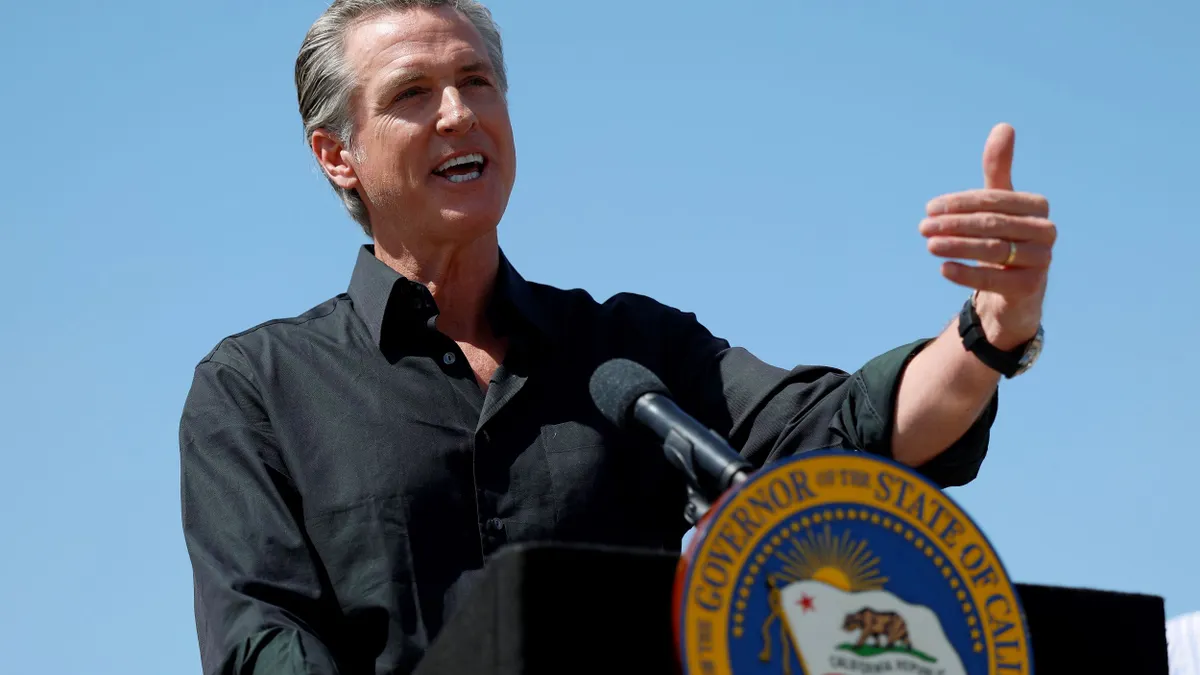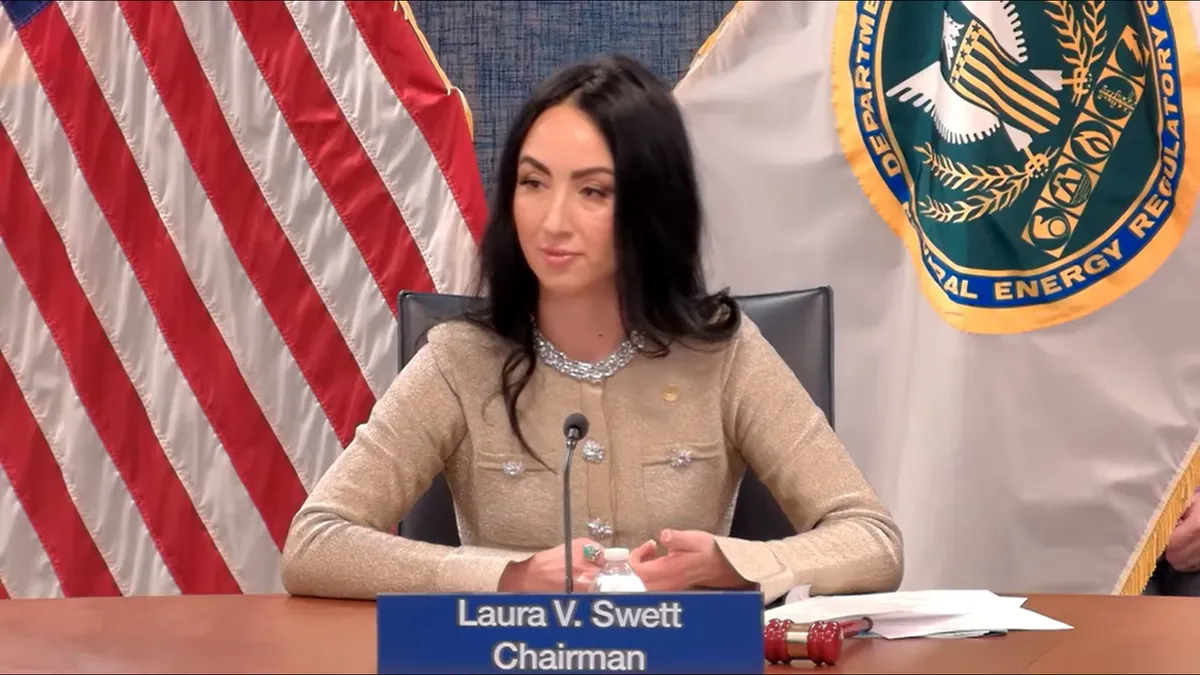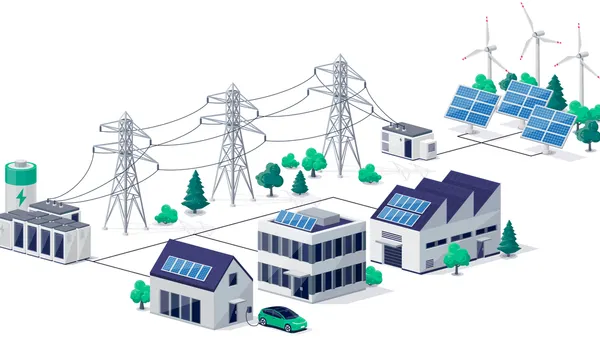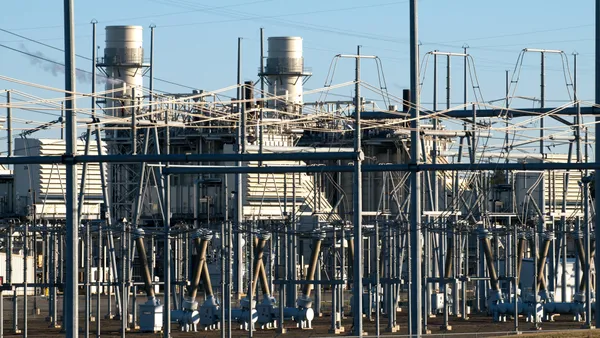Dive Brief:
- California Gov. Gavin Newsom last week vetoed several pieces of energy legislation, including AB 740, which passed with bipartisan support and would have required the state to adopt a virtual power plant deployment plan.
- In a letter to the governor last month, more than a dozen trade and environmental advocacy groups urged Newsom to sign AB 740 into law, claiming VPPs could save Californians $750 million per year in system costs and provide more than 7,500 MW of capacity.
- Newsom said in a statement that he supported the aim of harnessing distributed energy resources, but that the bill would have resulted in costs to the California Energy Commission’s primary operating fund, “which is currently facing an ongoing structural deficit.”
Dive Insight:
Newsom last month signed into law a broad package of energy legislation that laid the groundwork for a regional Western electricity market, extended the state’s cap and trade program and added $18 billion to the state’s wildfire fund.
But he rejected several bills that passed, and other initiatives that had been favored by clean energy advocates were left on the cutting room floor of negotiations.
Edson Perez, California lead at Advanced Energy United, said the governor’s vetoes “mark a major setback for California's supposed commitment to leveraging readily-available solutions to tackle real affordability problems.”
“Together, these decisions establish Governor Newsom as the state leader who walked away from billions in potential savings for ratepayers at a critical moment in California’s history,” Perez said in a statement.
In addition to AB 740, Newsom also vetoed SB 541, AB 1408 and AB 44.
SB 541 would have required the CEC and the California Public Utilities Commission to analyze load-shifting strategies and publish reports on load-shifting for each electric retail supplier. Newsom said in a statement that the bill was “redundant” of existing efforts and cost prohibitive for the state.
AB 1408 would have required the California Independent System Operator and utilities to integrate surplus interconnection into their planning. In a statement, Newsom said the bill “risks constraining energy resource procurement and interconnection options, likely increasing customer electric costs and undermining electric grid reliability.”
Newsom also vetoed AB 44, which would have codified load flexibility in state grid planning.















